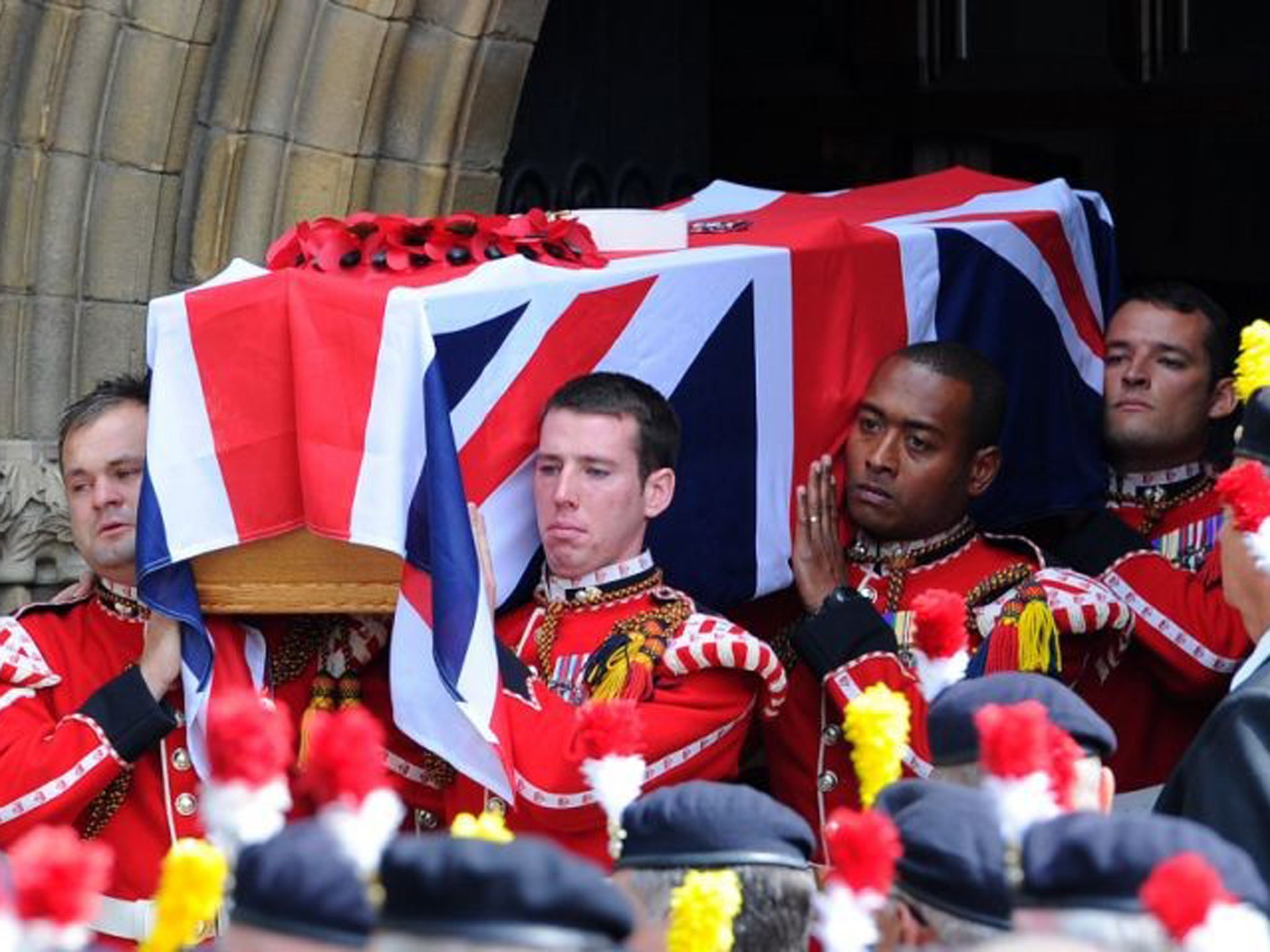On the day of Lee Rigby's funeral, let's really ask how we can stop such tragedies in the future
The mainstream British media tends to present all stories about conflict through the prism of nationhood. But there is no "us" and "them"


Your support helps us to tell the story
From reproductive rights to climate change to Big Tech, The Independent is on the ground when the story is developing. Whether it's investigating the financials of Elon Musk's pro-Trump PAC or producing our latest documentary, 'The A Word', which shines a light on the American women fighting for reproductive rights, we know how important it is to parse out the facts from the messaging.
At such a critical moment in US history, we need reporters on the ground. Your donation allows us to keep sending journalists to speak to both sides of the story.
The Independent is trusted by Americans across the entire political spectrum. And unlike many other quality news outlets, we choose not to lock Americans out of our reporting and analysis with paywalls. We believe quality journalism should be available to everyone, paid for by those who can afford it.
Your support makes all the difference.The funeral for murdered soldier Lee Rigby takes place today and perhaps among all the tributes to this tragic victim of a terrible crime, we should ask ourselves what will prevent such attacks in the future, in a rational, truthful way, untainted by emotive pleas for revenge and retribution.
The mainstream British media tends to present all stories about conflict through the prism of nationhood. They continually ask why it is that "young British Muslim men" volunteer to fight and die in other people's wars, as if this is simply too bizarre to contemplate.
Yet, for many people, including myself, the world can be viewed through a another prism, the prism of class and economics. In the 1930s many young British men volunteered to fight the fascist Franco regime in the Spanish civil war. These young men were idealists, mostly socialists and communists who believed in a wider community of brothers and sisters, joined together not by abstract ideas of nationhood but by class.
Like the volunteers of the International Brigades, many of today's young Muslim men feel a far stronger bond with their fellow Muslims across the Middle East and beyond than they do with their fellow 'Britons'. Whether the media refuses to accept this or not, this is a fact. Some feel so strongly about the treatment of their fellow Muslims that they are wiling to bomb and murder others. Their aims and methods are horrific, but you cannot deny these men and women their ideology.
In fact the media's obsession with so-called 'homegrown' terrorists, from the 7/7 attacks to the murders of Lee Rigby is reflective of a wider denial. Reporters and self-elected 'experts' pretend there is no underlying political rationale for such attacks and that the perpetrators are simply naïve or evil. It was the same in the 70s and 80s with the IRA and any other organisation that opposes the dominant political narrative. These people are simply terrorists and murderers fuelled by an irrational hate for 'us' and 'our values.'
But there is no 'us,' no 'them.' My values and sense of identity are entirely subjective, as are everyone's. To me and millions of others, the invented borders and cultures of nationhood are simply a handy way of dividing those who seldom get the opportunity to break through the economic barriers placed in their way. I believe that all wars are economic, no matter how they're dressed up. From Waterloo to the Somme, from El Alamein to Afghanistan, young, mostly poor British boys are sent to die to protect the interests of the super-rich.
The killers of Lee Rigby, like the killers of young soldiers in Northern Ireland by what remains of the IRA, regard any British soldier as a symbolic target. The moral relativism at work is summed up by the famous Lenny Bruce satire of Adolf Eichmann's trial when he asks "Do you people think yourselves better [than him] because you burned your enemies at long distance with missiles without ever seeing what you have done to them?"
It is the cycle of hate, hate born not only of military action but political spin, the toppling of 'rogue' regimes and the support of Saudi, Bahrain, Turkey and Israel that fuels these young men (it's almost always young men in their teens or 20s as it was in the International Brigades).
No doubt any form of explanation for the murder of Lee Rigby will be presented as tacit support for the killers and anyone who dares suggest alternatives to the "deranged killers" line will be demonised as a "liberal do-gooder' but I'm no supporter of Islam, either as a religion or a political philosophy. I am a militant atheist and would ban all forms of religion if I could. Islam like Communism is the 'evil other' that must be defeated and to defeat an enemy, first you must demonise it.
As talks with the Taliban have proved, all wars eventually end in compromise or capitulation. We say we will remember those who died in Helmand or in Belfast, Burma or The Somme but soon enough, there's another arena, another trade route to be protected and the world keeps spinning and kids keep dying.
Join our commenting forum
Join thought-provoking conversations, follow other Independent readers and see their replies
Comments